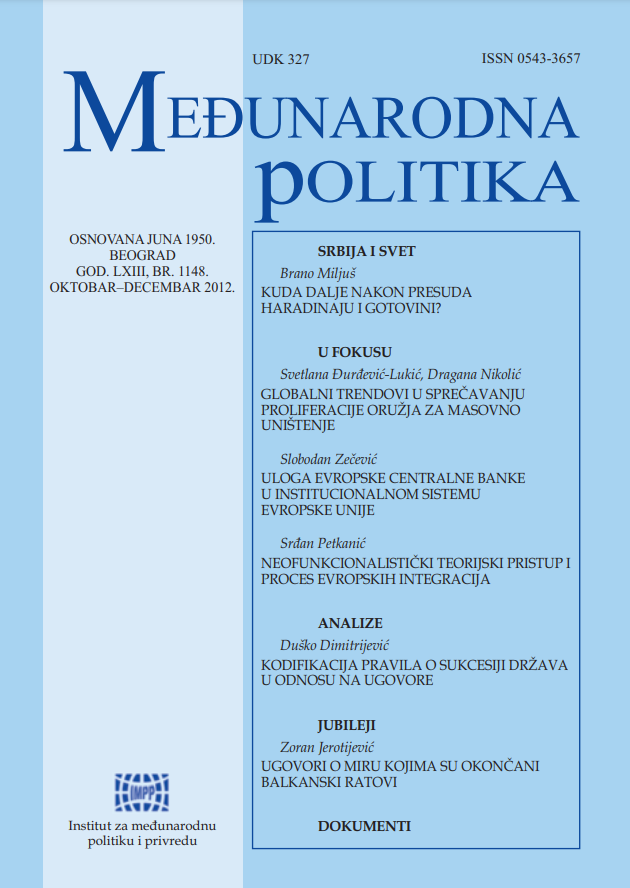Kuda dalje nakon presuda Haradinaju i Gotovini?
Where Is the Tribunal Going After Haradinaj and Gotovina Verdicts?
Author(s): Brano MiljušSubject(s): International Law, Geopolitics
Published by: Институт за међународну политику и привреду
Keywords: Western Balkans; USA; Hegemony; International Criminal Tribunal for the Former Yugoslavia
Summary/Abstract: Taking as a starting point the verdicts taken by the ad hoc International Criminal Tribunal for the Former Yugoslavia and the decision of the Appeals Chamber to release generals Gotovina and Markač as well as Haradinaj the paper does a complex analysis of this and previous international tribunals which have in a way reflected the collateral influence of legalised hegemony of great powers. The continuity of such legalised hegemony of power and influence has as its ultimate goal the following: enlargement of the NATO, consolidation of political systems being under the influence of the USA and full legalisation of humanitarian interventions. As for Serbia and Kosovo and Metohija, the last practical objective is to make Kosovo an independent state that should be as fast as possible recognised by as many countries as possible demonstrating the power for new geopolitical needs under the new conditions. Numerous controversies followed the establishment of the International Criminal Tribunal for the Former Yugoslavia. However, freethinking people were predominantly convinced that one should give a chance to the progressive development of international law and that the Tribunal should justify its existence by the consistent affirmation of the supreme international law principles, customs and natural law and by the respect of detailed and procedural standards controlled by the Security Council that would through its statute and implementation eliminate any shadow of impartiality and double standards in determining responsibility of both domestic and foreign perpetrators. If the Tribunal had managed to collect evidence conscientiously and take impartial decisions without taking tremendous efforts to recompose the history of one nation (the Serbian party) according to the geopolitical needs of legalisation of hegemony, it would have equally convicted the unforgivable violence committed by all parties considerably contributing to the reconciliation of the peoples in the Western Balkans.
Journal: Међународнa пoлитика
- Issue Year: 63/2012
- Issue No: 1148
- Page Range: 5-20
- Page Count: 16
- Language: Serbian

